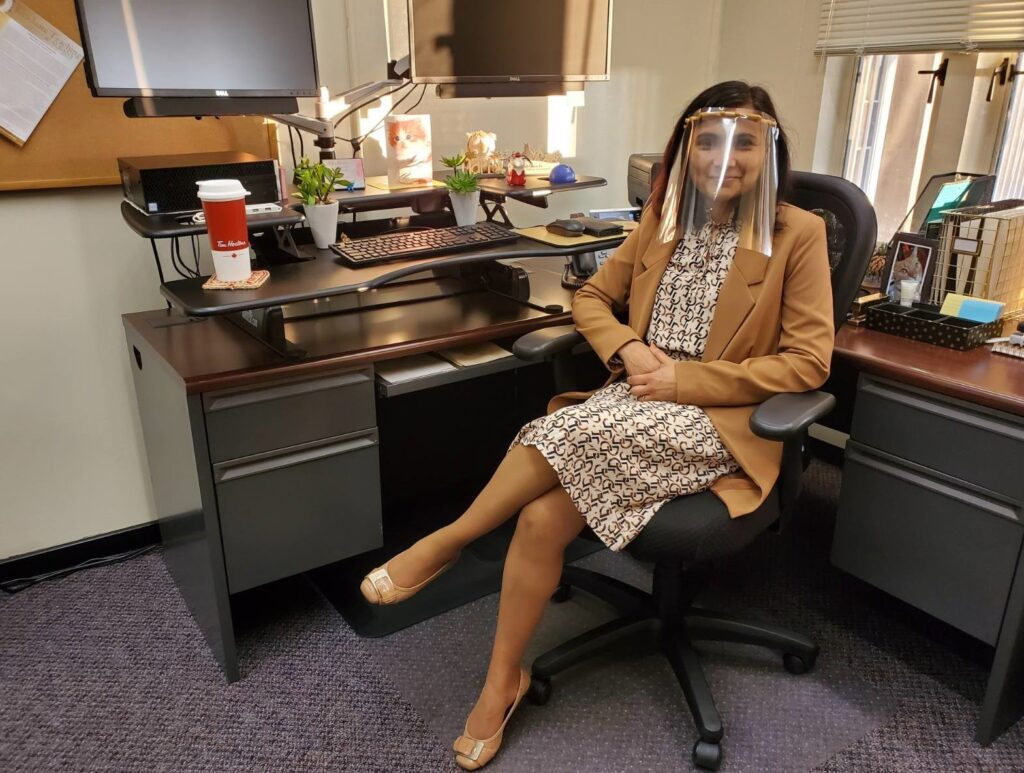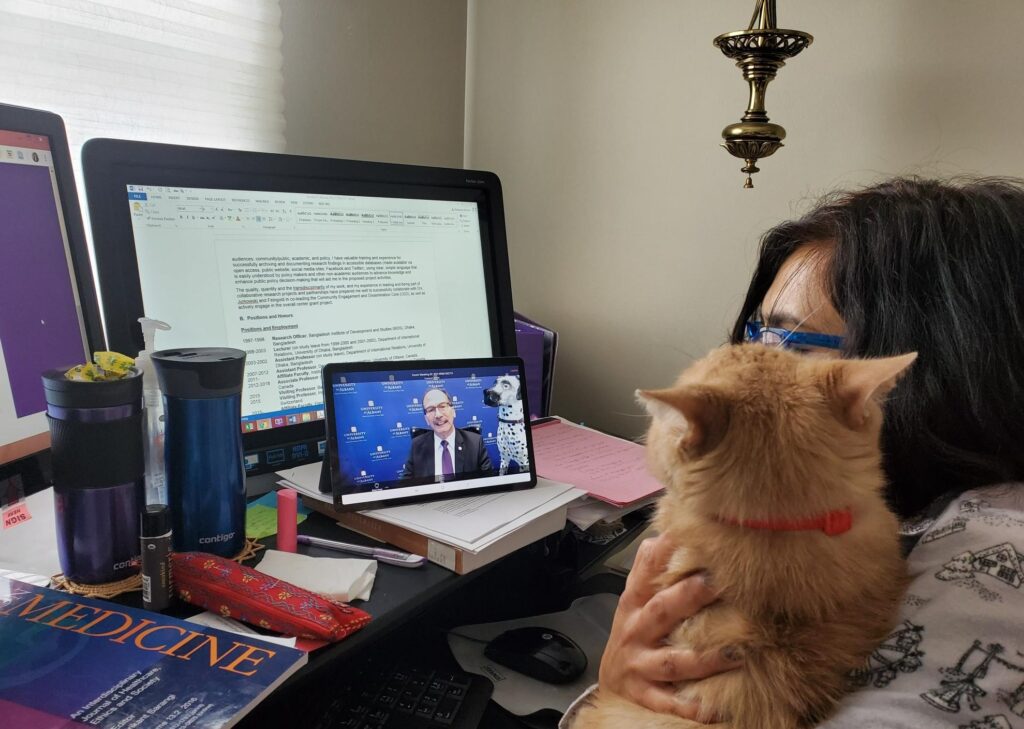Three questions with… Rukhsana!
Our lab is growing! In our Three Questions series, we’re profiling each of our members and the amazing work they’re doing.
Today’s post features Rukhsana Ahmed, an Associate Professor and Department Chair in the Department of Communication at the University at Albany, State University of New York. In this interview, she tells us about her work as a research associate at the ScholCommLab and offers words of wisdom for finishing what you start.

Q#1 What are you working on at the lab?
I recently collaborated with Alice Fleerackers, Michelle Riedlinger, Laura Moorhead, and Juan Pablo Alperin on a paper investigating how preprints—unreviewed research studies—about COVID-19 were portrayed in online media stories. We found that about half of media stories mentioning preprints did not communicate the unverified nature of the research.
That paper was part of our larger project, “Sharing Health Research: The Circulation of Reliable Health Science in a Changing Media Landscape,” which focuses on a range of aspects of online health communication. In the next phase of that project, I am planning to take a deep dive into COVID-19 vaccine information seeking and sharing pathways among racial and ethnic minority communities. This next study focuses on the ways in which these groups obtain and use evidence-based health information to make vaccination decisions. I’m also curious about the communication channels used by health care providers to share COVID-19 vaccine information with racial and ethnic minority communities. Understanding the communication strategies public health professionals use to establish trust and credibility when communicating such messages to these groups is important for improving public health risk communication.

Q#2 Tell us about a recent paper, presentation, or project you’re proud of.
Right now, I’m working with a team of student-faculty researchers at UAlbany to explore how multi-lingual YouTube videos can be used to connect people with limited English proficiency (LEP) with essential COVID-19 information. By providing content that is linguistically and culturally relevant, we see these videos—available in Arabic, Bangla, Chinese, and Spanish—as crucial to addressing the communication inequalities among LEP groups. This project is still in the works—we’re wrapping up the pre- and post-test surveys and launching the post-test-only surveys and interviews—but I’m very proud of how far we’ve come. I’m excited to see how our research findings will help identify levers of change within language communities and recommendations to providers for how to produce audiovisual materials that encourage vaccination.
Q#3 What’s the best (or worst) piece of advice you’ve ever received?
One of the best pieces of advice I received was from my doctoral advisor, who said: “A good project is a done project.” I took it by heart and lived by it, and in the spirit of paying it forward, I also give my students this piece of advice. It has helped me stay focused and on task on the projects I work on. I think this advice also helps students to see through what they start by encouraging them to devise, and stick to, a plan for completion. For researchers who are perfectionists and may get hung up on working through the small details, this advice can help them to keep the big picture in mind and make progress in their work.
Follow Rukhsana on Twitter at @RAUAlbany.
